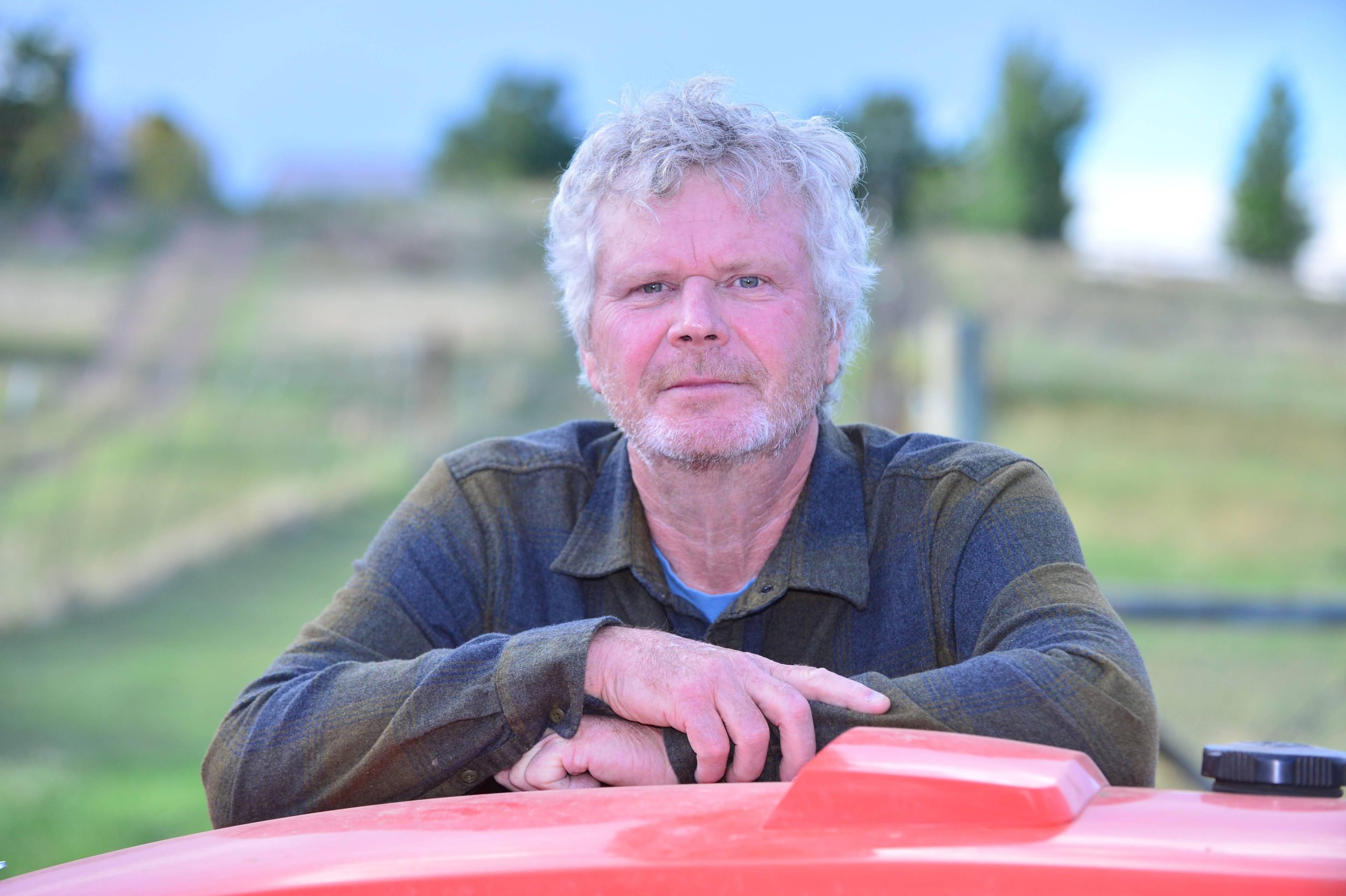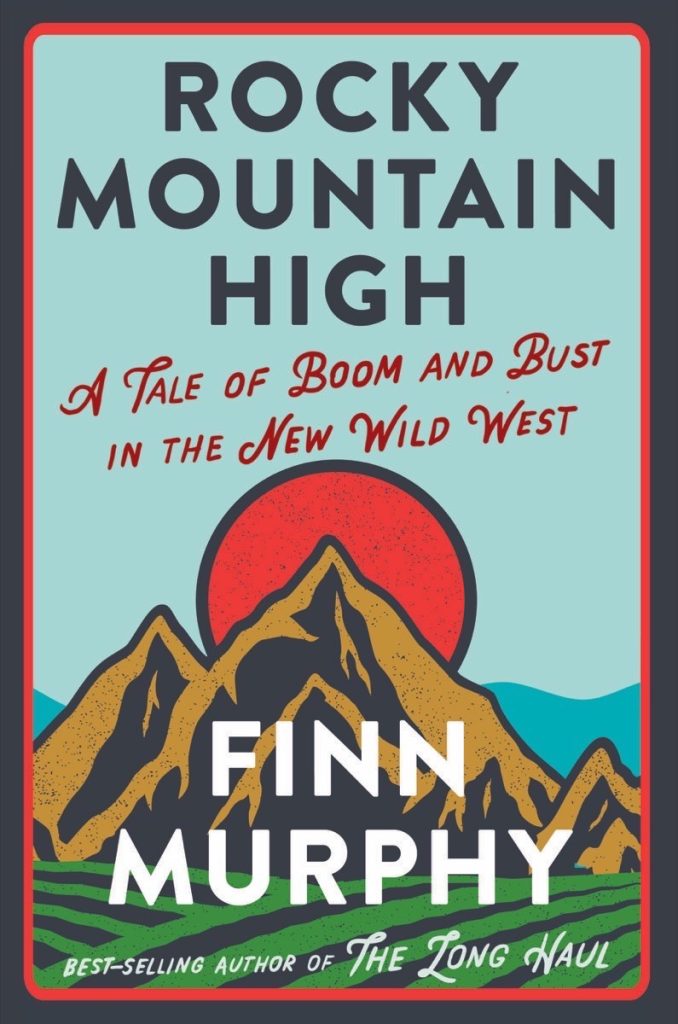
The hemp boom-and-bust cycle that began after the Farm Bill reclassified the plant in 2018 bankrupted a lot of would-be entrepreneurs, but few have been candid about what they did wrong and how much money they lost.
That’s why Finn Murphy’s Rocky Mountain High: A Tale of Boom and Bust in the New Wild West, a nonfiction account of his own misfortune trying to hit it big with a Boulder County hemp farm, is such a fascinating read. It’s as much a chronicle of the hemp industry’s collapse as it is a clear-eyed account of business failure.
Murphy bought a 36-acre plot of land in 2019 for more than a million dollars — 13 months later, after a series of missteps including misjudging the market, he was in the red for north of $300,000. He still has the land he’s paying taxes on, which he’s using to feed a few cattle.
The author had been researching hemp for more than a year when he set out to start the farm. The market information he was getting suggested he would be able to clear at least $100,000 an acre.
“Thirty-six acres times $100,000 is big money,” he writes in the book, published last year via W.W. Norton. “Hemp was going to hit the big time and I was more excited than I’d been in years.”

‘The major irony’
Murphy had a track record of running successful businesses, including luxury retail. Before he took the hemp plunge, he’d also spent many years on the road as a long-haul trucker, which he wrote about in The Long Haul: A Trucker's Tales of Life on the Road, his first nonfiction book published in 2017.
Murphy decided to grow hemp for smokeable flower because there was a brief window in 2018 when a high demand for bud pushed prices to $350 per pound on the wholesale market. Hemp grown to be processed into CBD was only selling for $60 per pound wholesale.
Of the 100 or so growers in Boulder County that Murphy knew, “everybody was growing for smokeable flower, because everybody was thinking $350 a pound.” That was the problem: Everyone had the same idea, which meant too much supply. Ultimately, the prices didn’t hold up.
It’s not giving too much away to say Murphy’s venture doesn’t go as planned. In his acerbic prose style, the Boulder-based author details what went wrong and the aftermath of those bad business dealings.
Toward the end of the book, with a building full of hemp and no market for it, Murphy describes how guys in black vans showed up to take the product off his hands for pennies on the dollar. They were buying his cheap, low-THC hemp flower to mix in with high-THC cannabis, which can sell for more than $1,000 a pound — “cutting” it, essentially, like street-drug dealers.
“That’s the major irony,” Murphy says. “All of these people who had all these great ideas that they were going to save the world with hemp actually ended up selling their stuff to drug dealers.”
Irrational exuberance
In Rocky Mountain High, Murphy explains the hemp craze as a classic American economic mania similar to the gold rush and silver mining boom, complete with exhilaration from the locals, an influx of outside capital, government support and lots of media hype. In that context, he intends his book to be a cautionary tale.
“It’s important to understand what the components look like, so we don’t get trapped again,” Murphy says.
Although the author says the Colorado Department of Agriculture (CDA) was “exuberant” about hemp as a sustainable cash crop aimed at helping small farmers keep their land, he doesn’t think the CDA intentionally misled anyone.
In the early days, the department warned hemp growers that if they were going to plant, they needed to have a forward contract from someone to buy it.
“The fact of the matter is no one was giving a forward contract,” Murphy says. “And if they were, they never honored one.”
Today, most of the hemp in the U.S. is being grown indoors, according to Murphy. Cultivators can produce one harvest per month in a greenhouse-controlled environment compared to one per year outdoors, and there’s no risk of cross-pollination.
“I should have seen that coming,” Murphy says. “The CDA should have seen that coming.”
‘To me, it’s natural’
Murphy isn’t just a business guy who decided to write a book. He hails from a family of writers and artists. His brother Cullen is editor-at-large for The Atlantic. Growing up in Murphy’s household, the way to get positive reinforcement from his parents wasn’t to be good at sports or eat the last pea on his plate.
“If you could write something, then that’s where you got an extra use of the car or a second helping of meatloaf,” he says. “I have a sister who’s written four books. I have a brother who’s written seven. I grew up doing it. So I never felt intimidated by it. To me, it’s natural.”
That background helps explain how Murphy could be so forthright about the lessons he learned. Most people would have taken their losses and moved on, maybe told a friend or a family member about the financial hit they took. Not many would write a book about it.
“I don’t have that kind of ego,” Murphy says. “I maybe have a different kind of ego, but I don’t really care about showing the mistakes I made and the things I did wrong. I should have known better.”
ON THE PAGE: Rocky Mountain High: A Tale of Boom and Bust in the New Wild West is out now via W.W. Norton.
